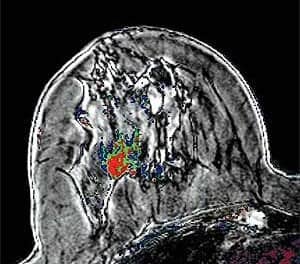
JoAnn Pushkin, Director of Government Relations, Are You Dense Advocacy
Given a physical trait as critically important as breast density for the detection of breast cancer in women, you would expect that physicians would readily and vehemently report the status of a patient’s breast density. However, that could not be further from the truth. With the exception of a few states that currently require physicians to report the density of a patient’s breasts, most women undergo annual mammography that may have missed an existing cancer without any recourse or understanding of why there was such an oversight. Are You Dense Advocacy Inc (AYDA) is working to change this disturbing trend.
“AYDA grew out of the grassroots efforts of sick women, all who were diagnosed at a later stage than necessary as density interfered with their mammograms, to have breast density information included in the letter women receive after their mammogram—known as the ‘lay letter,’ ” said JoAnn Pushkin, director of government relations, Are You Dense Advocacy Inc. “The legislative efforts have been built on the shoulders of the nation’s first Breast Density Inform law in Connecticut. That legislative success story was spearheaded by Dr Nancy Cappello, who is president and founder of both Are You Dense and AYDA.”
In January 2004, Nancy Cappello was diagnosed with stage 3c breast cancer, which had been missed on her regularly scheduled mammogram due to dense breast tissue. After surviving a mastectomy, reconstruction, eight chemotherapy treatments, and 24 radiation treatments, Cappello recovered, and in 2009, she was able to pass the Breast Density Inform law in the state of Connecticut, which requires physicians to report a patient’s breast density to allow for further screening—specifically, an ultrasound procedure, which can more readily detect breast cancer in women with dense tissue.
“If you live in Connecticut or Texas, you will find out about your breast density,” said Pushkin. “If you live in the other 48 states, unless you go to a doctor who is very proactive and on top of the research and reading journals, you won’t. There are great doctors who are routinely discussing this with their patients, but that’s not all of them. It’s not fair to women.”
Now, Pushkin, Cappello, and AYDA are attempting to pass federal legislation that would require all doctors to tell women whether they have dense breasts. According to Pushkin, the act was introduced in October 2011 by Representatives Rosa L. DeLauro (D-Conn) and Steve Israel (D-NY), and is currently housed in the Committee on Energy and Commerce. Despite some opposition to the bill initially—concerns arose about supporting science, pushback from physicians unhappy with being told what to do, and low reimbursement rates for ultrasound—Pushkin is hopeful that the bill, which does not cater to Republicans or Democrats and should easily draw bipartisan support, will pass.
“What you don’t know can kill you,” said Pushkin. “If I don’t know that I have this risk factor, then I don’t know to be vigilant about mammograms or self-exams. I don’t know how anyone can justify keeping this risk factor from me. It’s a health barometer like blood pressure or cholesterol, which are routinely supplied to patients. So for a woman to not be told this, it’s unfathomable that I would have my mammogram every year and no one thought to mention to me that they might miss a cancer because of my density.”




